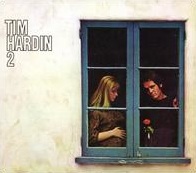History
The original LP release has a long poem on the back cover by Hardin titled "A Question of Birth..."
Tim Hardin 2 contains Hardin's most popular and much-covered composition "If I Were a Carpenter", most notably Bobby Darin, whose version peaked at No. 8 in the US and No. 9 in the UK in 1966.
Tim Hardin 2 was re-released on CD in 1998 by Repertoire along with Tim Hardin 1. [1]
This page is based on this
Wikipedia article Text is available under the
CC BY-SA 4.0 license; additional terms may apply.
Images, videos and audio are available under their respective licenses.
